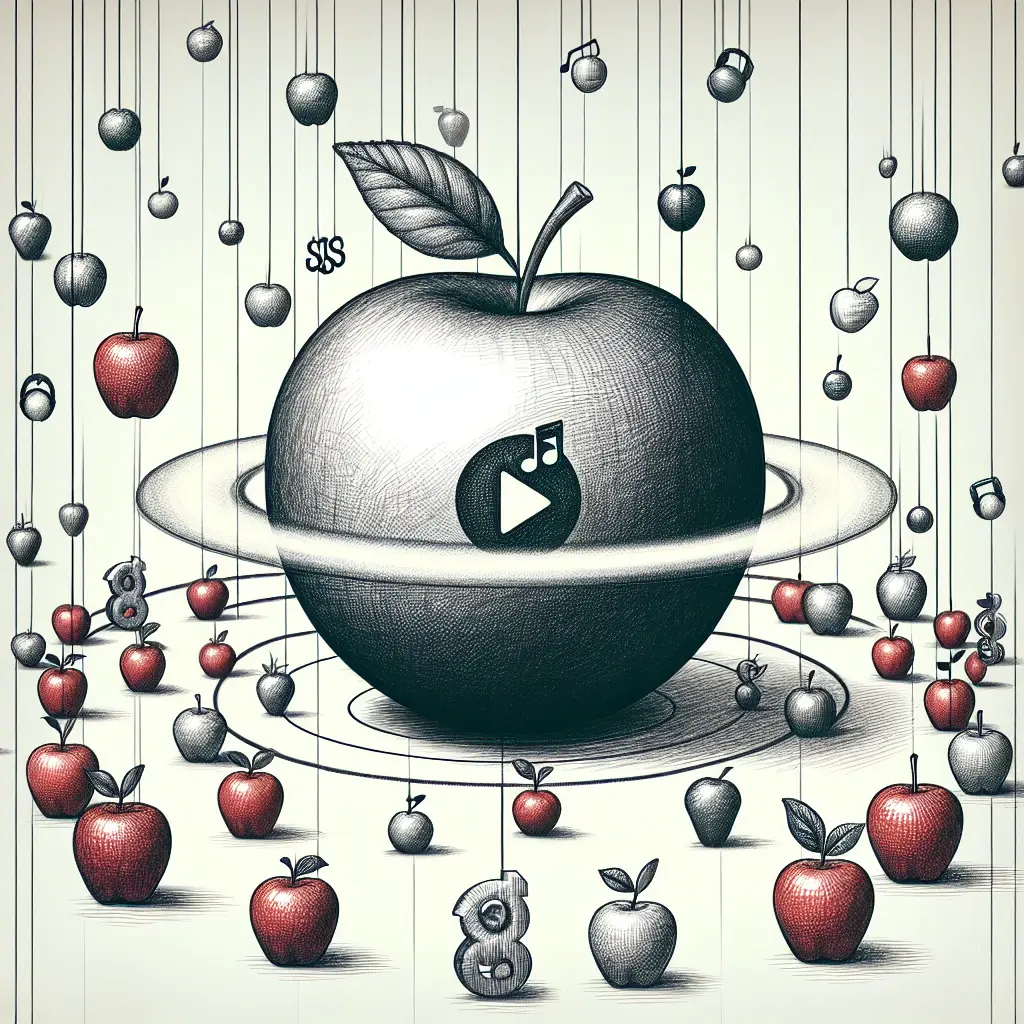
In recent years, the digital music consumption landscape has undergone a significant transformation, largely due to the emergence and evolution of music streaming services. Among these, Apple Music has notably reshaped the streaming industry, marking its influence through innovative features, strategic market positioning, and consistent growth in subscriber numbers. This post delves into the impact of Apple Music on the streaming market, comparing it with competitors like Spotify, and exploring its role in the broader music industry disruption.
The Impact of Apple Music
Since its launch in 2015, Apple Music has steadily grown to become one of the leading music streaming services worldwide. With its integration into the vast ecosystem of Apple products and services, Apple Music offers a seamless experience for its users, contributing significantly to the digital music consumption revolution. As of 2023, Apple Music boasts millions of subscribers globally, a testament to its robust growth and appeal within the competitive streaming industry.
Apple Music Features and Subscriber Growth
Apple Music's success can be attributed to several unique features and strategic initiatives. Subscribers benefit from an extensive library of over 90 million songs, expert-curated playlists, and the integration of Siri for voice-controlled playback — features that enhance user engagement and satisfaction. Moreover, Apple Music provides exclusive content such as original shows, concerts, and behind-the-scenes footage, adding value beyond just music streaming.
Recent updates have further boosted Apple Music's appeal. For instance, Apple's decision to allow developers access to its NFC technology not only avoids a potential EU fine but also opens new possibilities for interactive experiences within the Apple ecosystem, potentially increasing subscriber engagement and retention (Source: Apple Insider).
Apple Music vs Spotify: A Streaming Service Comparison
When comparing Apple Music with Spotify, the latter holds a larger share of the streaming market, thanks to its early entry and freemium model. However, Apple Music's subscriber base is more engaged, thanks to its ecosystem integration and high-quality audio offerings. Both platforms are key players in defining music streaming trends, but Apple's approach to exclusive content and integrated services differentiates it from Spotify's broader, more platform-agnostic strategy.
Digital Music Consumption and Streaming Market Share
The rise of streaming services like Apple Music has significantly altered how people consume music. The convenience of having vast music libraries at one's fingertips has made traditional formats like CDs virtually obsolete. According to industry reports, streaming now accounts for the largest share of revenue in the music industry, with services like Apple Music leading the charge (Source: Billboard).
Apple Music's role in this shift is crucial. Its growth has not only expanded the market but also pressured other players to innovate continually. The competition for streaming market share has led to improved services across the board, benefiting consumers worldwide.
Music Streaming Trends Influenced by Apple Music
Apple Music has been at the forefront of several key trends within the music streaming industry. High-fidelity audio is one such trend, with Apple introducing lossless audio and spatial audio features that have set new standards for sound quality in streaming (Source: The Verge). These innovations not only improve user experience but also push competitors to adopt similar technologies.
Another significant trend is the platform's approach to artist exclusives and original content, which has influenced how artists release music and interact with fans. This strategy not only boosts subscriber numbers but also changes the dynamics of music promotion and distribution.
Apple Music Revenue and Industry Disruption
The financial impact of Apple Music on the broader music industry cannot be understated. It has contributed significantly to the overall revenue growth seen in digital music sales over the past decade. This economic influence extends beyond just numbers; it's reshaping how money is made and distributed within the industry, heralding a shift from physical sales to digital streaming as the primary revenue source.
Recent News and Updates
In addition to its ongoing developments in music streaming, Apple continues to make headlines with other innovations and deals that indirectly benefit Apple Music subscribers. For example, during Amazon Prime Day 2024, consumers found excellent deals on Apple gadgets including AirPods, MacBooks, and iPads (Source: Amazon). Such devices are integral to the seamless experience offered by Apple Music, enhancing its usability and accessibility.
Moreover, the beta release of Apple Maps on the web marks another strategic move by Apple to integrate its services more deeply into users' lives, potentially increasing the stickiness of Apple Music by making it part of a broader ecosystem that users engage with daily (Source: TechCrunch).
Conclusion
The influence of Apple Music on the streaming industry is profound and multifaceted. From driving subscriber growth and setting new standards in audio quality to impacting revenue models and music consumption behaviors, Apple Music continues to play a pivotal role in the ongoing evolution of the music landscape. As it expands its features and integrates more deeply with other Apple services, its impact is likely to grow even further, shaping the future of music streaming in ways we can still only imagine.
Oliver Grant